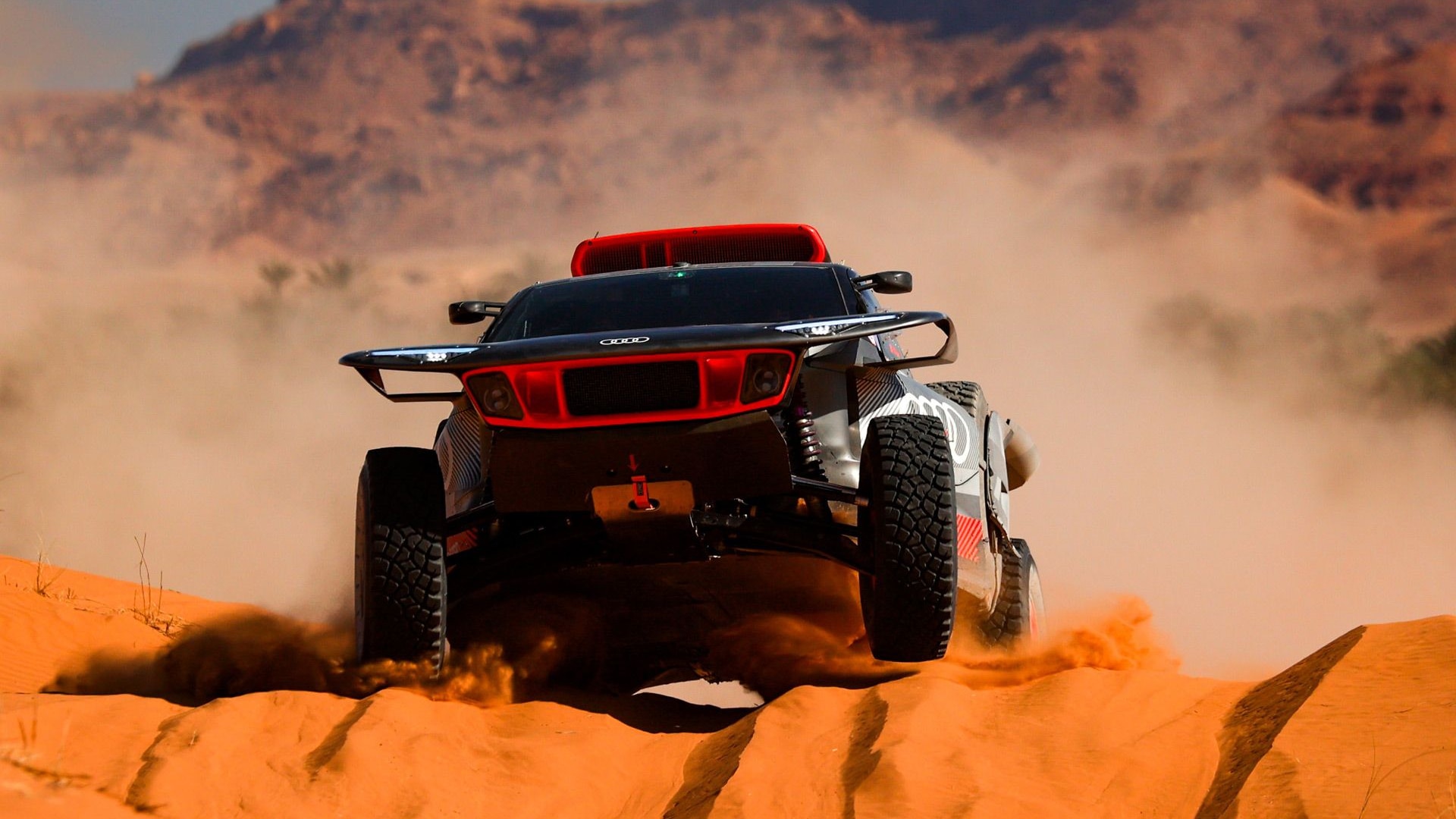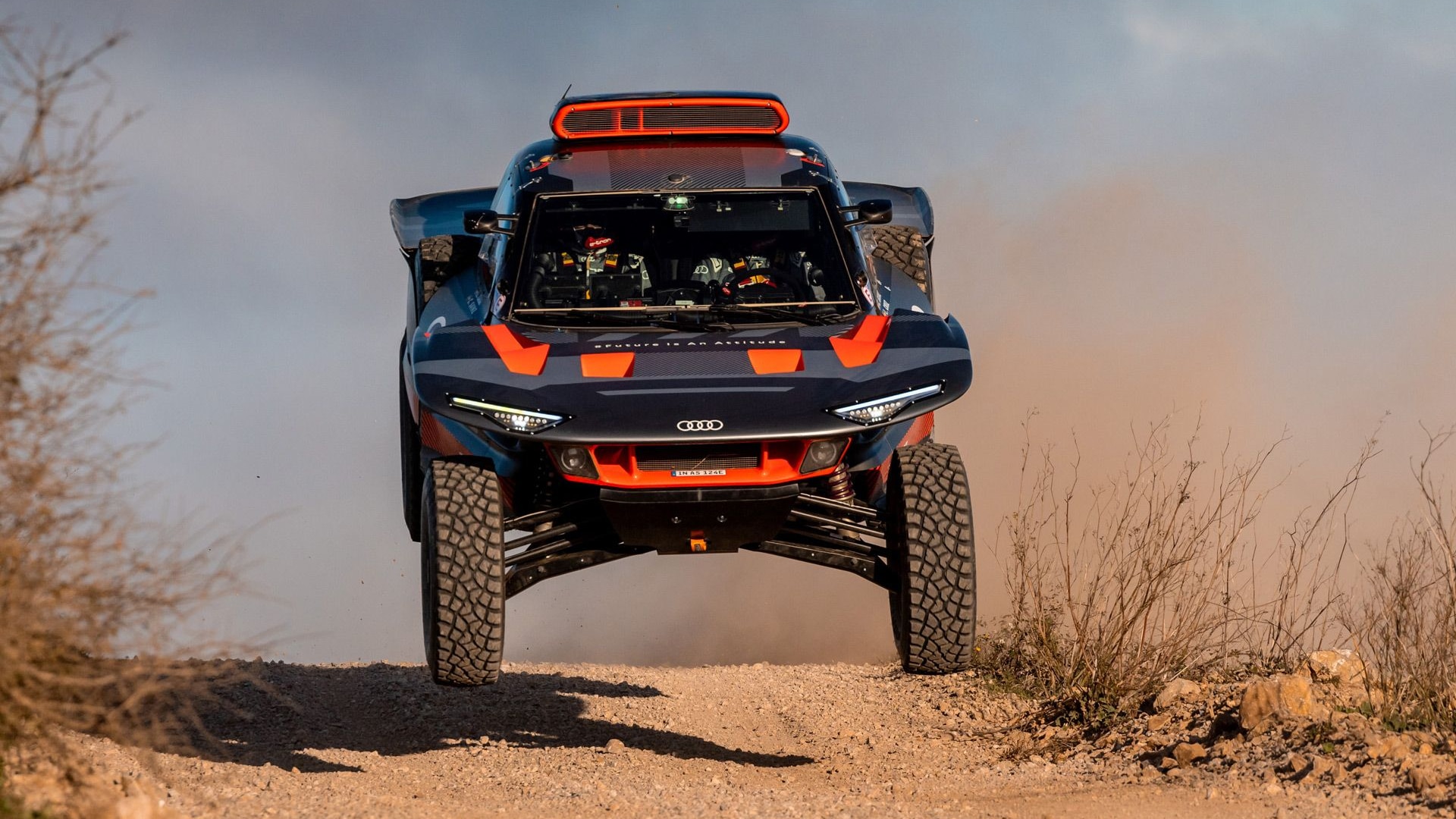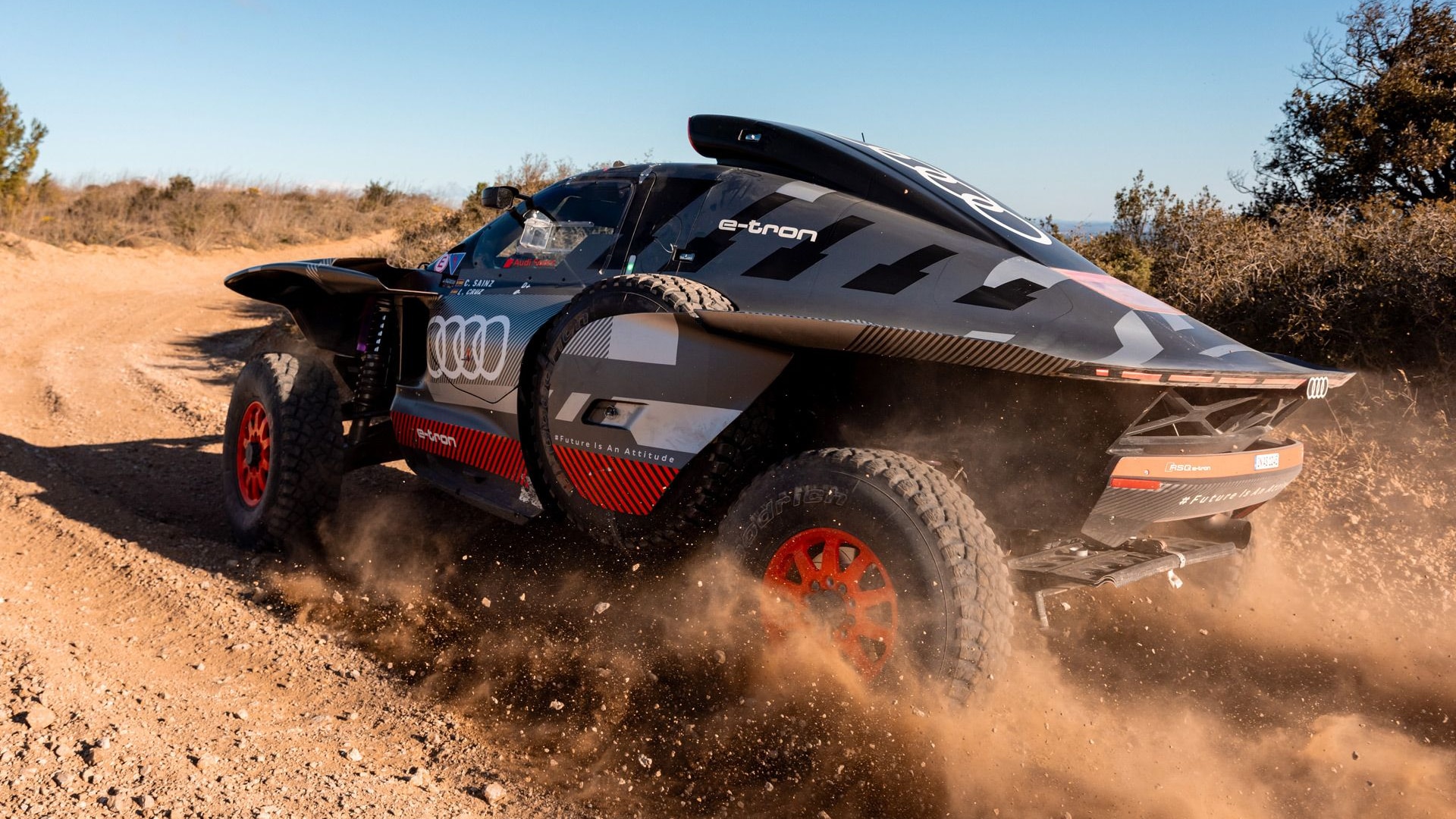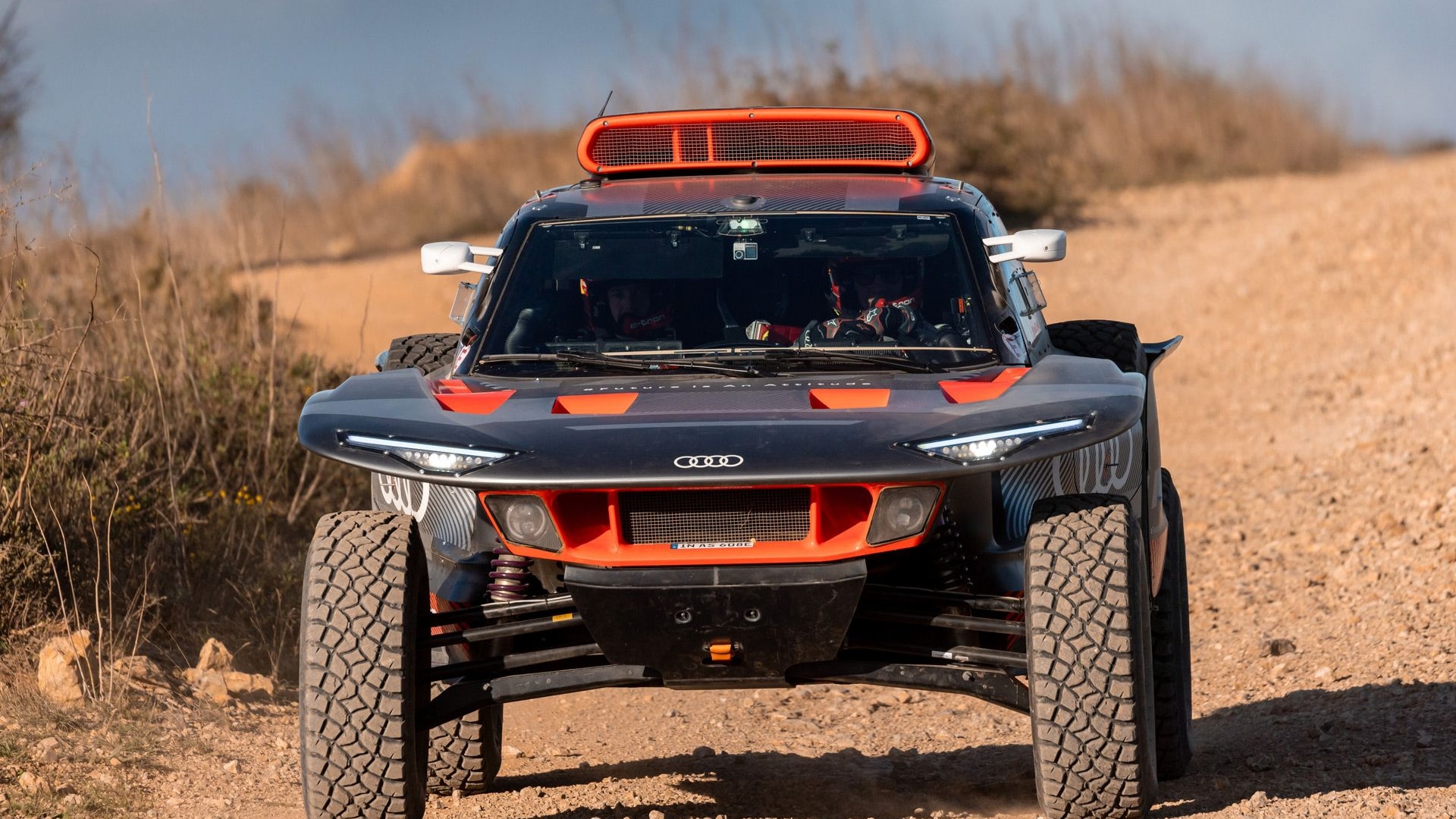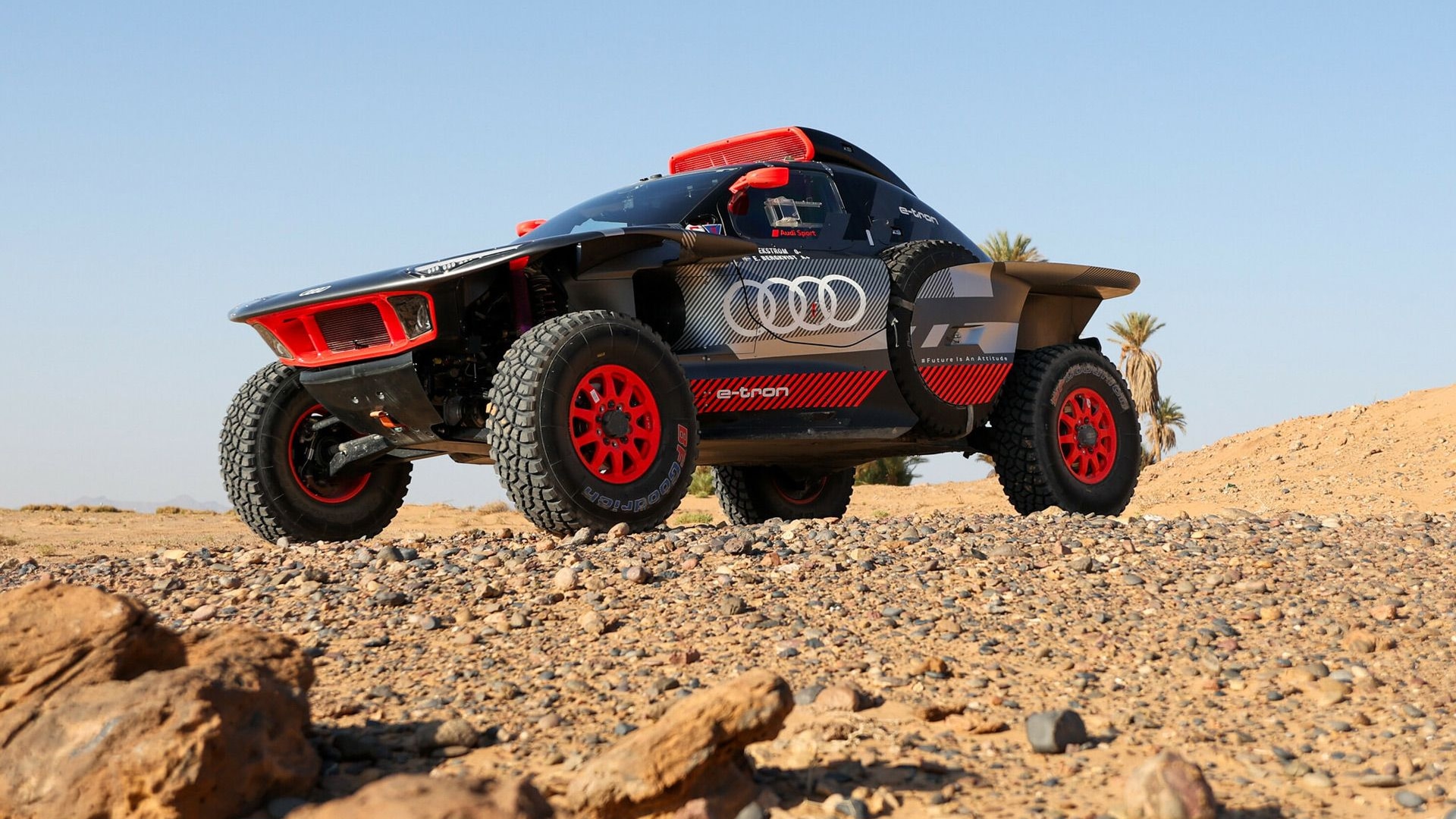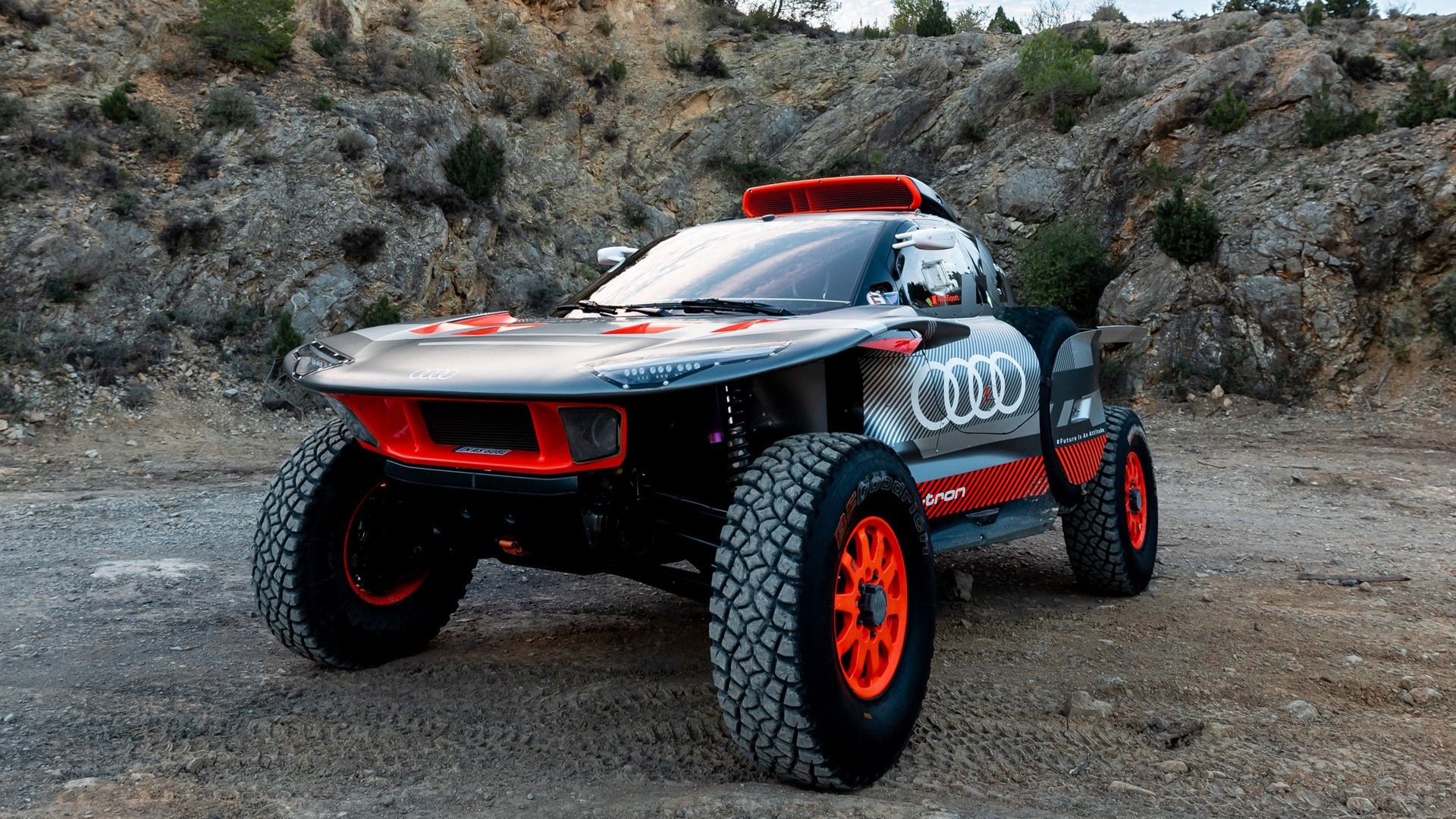Audi has revealed an updated version of its bespoke RS Q E-Tron built to tackle the grueling Dakar Rally.
This is the third iteration of the rally raid-style SUV, which Audi has confirmed will compete in the 2024 Dakar Rally in January. The rally will cover close to 5,000 miles, crossing the rocky outcrops and deserts of Saudi Arabia.
The updates help improve the safety, comfort, and reliability of the RS Q E-Tron, Audi said. They have also reduced the weight of the vehicle and shortened maintenance times.
The original RS Q E-Tron was entered in the 2022 Dakar Rally. It proved successful, as Audi managed some stage victories and some single-day podium results. An updated RS Q E-Tron was then entered in the 2023 Dakar Rally, but crashes meant the team was largely unsuccessful.
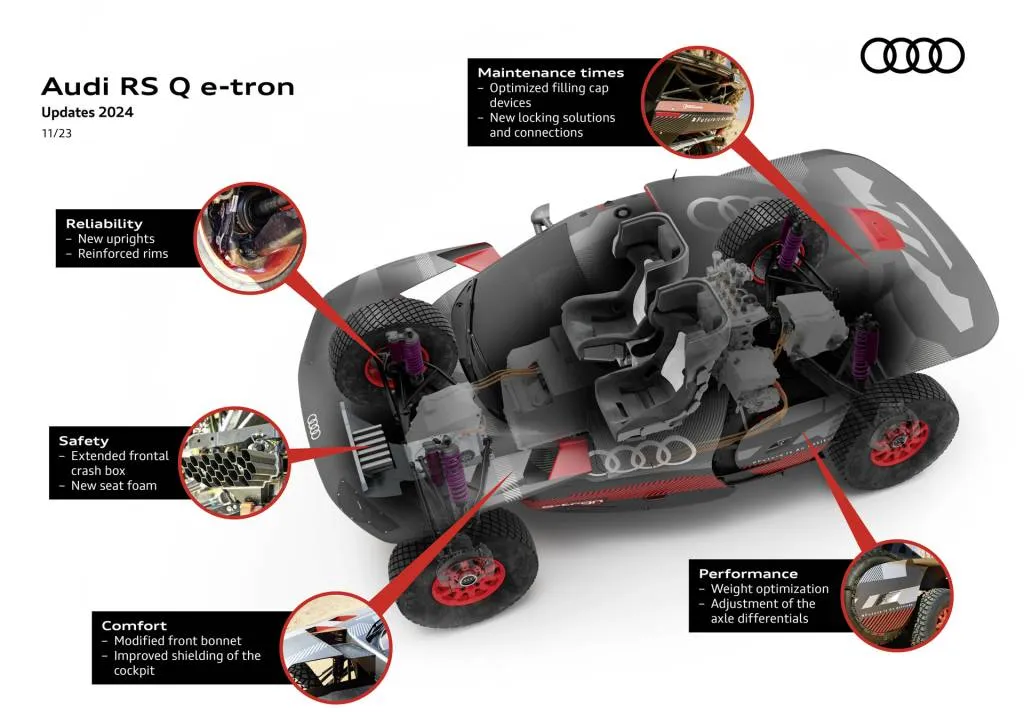
2024 Audi RS Q E-Tron rally car
Like the previous iterations, the latest RS Q E-Tron remains a series plug-in hybrid, where a combustion engine is used to charge a battery feeding an electric drive system, in this case a dual-motor all-wheel-drive setup delivering a peak of 383 hp.
Regulations call for a minimum weight of 2,100 kg (approximately 4,630 pounds). The RS Q E-Tron weighs more than this target, but engineers still managed to reduce the weight from previous iterations by using lighter body panels, smaller brake calipers, and optimizing some interior components. They managed this while working with tires that are more robust but heavier than in previous years.
In the area of safety, the engineers wanted to achieve less bounce during landings after big jumps, an issue that led to a vehicle rolling during the 2023 rally. Changes were made to the springs, dampers, and the bump stops in the chassis, Audi said. A carbon-fiber reinforced plastic crash box at the front of the chassis was also made longer, allowing it to absorb more energy during crashes.
Competing in the Dakar enables Audi to stress test multiple components, some of them possibly bound for future production EVs, including perhaps a rugged off-roader. Audi also competed in Formula E, but unlike that series, whose races last just 45 minutes, the Dakar Rally has multiple stages spanning two weeks, with some stages running close to 500 miles in length and lasting multiple hours, providing a much better test of endurance.
